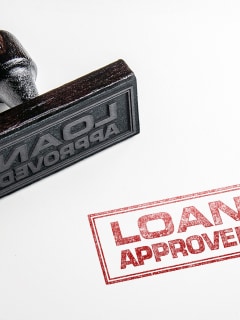CKYC Registry
-
Customer Service Contact us Service request Locate a branch
Find all the help you need
Scan the QR, get our app, and find help on your fingertips

Help CenterSupport topics, Contact us, FAQs and more
-
Login
Are you ready for an upgrade?
Login to the new experience with best features and services
-
Login
Are you ready for an upgrade?
Login to the new experience with best features and services
- Accounts
-
Deposits
IDFC FIRST Bank Deposits
View all Deposits -
Loans
IDFC FIRST Bank Loans
View all Loans - Wealth & Insure
-
Payments
IDFC FIRST Bank Payments
View all Payments -
Cards
IDFC FIRST Bank Cards
View all Cards - Blogs
- Corporate Account
-
Cash Management Services
IDFC FIRST Bank Cash Management Services
View all Cash Management Services - Supply Chain Finance
-
Corporate Lending
IDFC FIRST Bank Lending
View all -
Treasury
IDFC FIRST Bank Treasury
See more details - NBFC Financing
Support topics, Contact us, FAQs and more
- IDFC FIRST Bank Accounts
-
Savings Account
-
Corporate Salary
Account -
Senior Citizens
Savings Account -
First Power
Account -
Current Account
-
NRI Savings
Account -
TASC Institutional
Account -
Savings Account
Interest Calculator
- IDFC FIRST Bank Deposits
-
Fixed Deposit
-
Recurring Deposit
-
NRI Fixed Deposit
-
Safe Deposit Locker
-
FD Calculator
-
RD Calculator
- IDFC FIRST Bank Loans
-
Personal Loan
-
Consumer Durable
Loan -
Home Loan
-
Business Loan
-
Professional Loan
-
Education Loan
-
New Car Loan
-
Pre-owned Car Loan
-
Two Wheeler Loan
-
Pre-owned Two
Wheeler Loan -
Commercial Vehicle
Loan -
Gold Loan
-
Loan Against Property
-
Loan Against Securities
-
Easy Buy EMI card
-
Personal Loan
EMI Calculator -
Education Loan
EMI Calculator -
Home Loan
EMI Calculator
- IDFC FIRST Bank Wealth & Insure
-
FIRST Select
-
FIRST Wealth
-
FIRST Private
-
Mutual Funds
-
Sovereign Gold Bond
-
Demat Account
-
Term Insurance
-
Life Insurance
-
Health Insurance
-
General Insurance
-
Bonds
-
Loan Against
Securities -
Portfolio Management
Service
- IDFC FIRST Bank Payments
-
FASTag
-
Credit Card
Bill Payments -
UPI
-
Funds Transfer
-
Forex Services
-
Pay Loan EMI
- IDFC FIRST Bank Cards
-
Ashva :
Metal Credit Card -
Mayura :
Metal Credit Card -
FIRST Millennia
Credit Card -
FIRST Classic
Credit Card -
FIRST Select
Credit Card -
FIRST Wealth
Credit Card -
FIRST WOW!
Credit Card -
Deals
-
Debit Cards
-
Co-branded Cards
-
Credit Card
EMI Calculator -
FIRST Corporate
Credit Card -
FIRST Purchase
Credit Card -
FIRST Business
Credit Card
- Premium Metal Credit Cards
-
AshvaLifestyle1% Forex₹2,999
-
MayuraLifestyleZero Forex₹5,999
-
FIRST PrivateInvite Only
- Best for travellers
-
MayuraZero ForexMetal₹5,999
-
Ashva1% ForexMetal₹2,999
-
FIRST WOW!Zero ForexTravelLifetime Free
-
FIRST SWYPTravel OffersEMI₹499
-
FIRST Select1.99% ForexLifestyleLifetime Free
-
FIRST Wealth1.5% ForexLifestyleLifetime Free
-
Club VistaraTravelLifestyle₹4,999
-
IndiGo IDFC FIRST Dual Credit CardTravelLifestyle₹4,999
- Max benefits, Free for life
-
FIRST Classic10X RewardsShoppingNever Expiring Rewards
-
FIRST Millennia10X RewardsShoppingNever Expiring Rewards
-
FIRST Select10X RewardsLifestyle1.99% Forex
-
FIRST Wealth10X RewardsLifestyle1.5% Forex
-
FIRST WOW!RewardsTravelZero Forex
-
LIC ClassicRewardsInsuranceShopping
-
LIC SelectRewardsInsuranceShopping
- Reward Multipliers
-
AshvaLifestyleMetal₹2,999
-
MayuraLifestyleZero Forex₹5,999
-
FIRST ClassicNever Expiring RewardsShoppingLifetime Free
-
FIRST MillenniaNever Expiring RewardsShoppingLifetime Free
-
FIRST SelectNever Expiring RewardsLifestyleLifetime Free
-
FIRST WealthNever Expiring RewardsLifestyleLifetime Free
- Rewards & Credit on UPI
-
FIRST Power+FuelUPI₹499
-
FIRST PowerFuelUPI₹199
-
FIRST EA₹NVirtual1% Cashback₹499
-
FIRST DigitalVirtualUPI₹199
-
IndiGo IDFC FIRST Dual Credit CardUPITravelDual cards
- Fuel and Savings
-
FIRST PowerRewardsUPI₹199
-
FIRST Power+RewardsUPI₹499
-
LIC ClassicRewardsInsuranceShopping
-
LIC SelectRewardsInsuranceShopping
- Express and Flaunt
-
AshvaMetal1% Forex₹2,999
-
MayuraMetalZero Forex₹5,999
-
FIRST SWYPEMIOfferMAX₹499
-
FIRST MillenniaRewardsShoppingLifetime Free
- FD Backed rewarding Credit Cards for all
-
FIRST EA₹NVirtualCashback₹499
-
FIRST WOW!Zero ForexTravelLifetime Free
-
CreditPro Balance TransferTransfer & SaveReduce InterestPay Smartly
- IDFC FIRST Bank NRI Forex Solutions
-
Send money to India-Wire transfer
-
Send money to India-Digitally
-
Send money abroad
-
Max Returns FD (INR)
- IDFC FIRST Bank MSME Accounts
-
Platinum Current
Account -
Gold
Current Account -
Silver Plus
Current Account -
Merchant Multiplier
Account -
Agri Multiplier
Account -
TASC Institutional
Account -
Dynamic Current
Account -
World business
Account -
First Startup
Current Account
- IDFC FIRST Bank Business Loans
-
Business Loan
-
Professional Loan
-
Loan Against Property
-
Business Loan for Women
-
Working Capital Loan
-
Construction Equipment Loan
-
Machinery Loan
-
Healthcare Equipment Loan
- IDFC FIRST Bank Business Solutions
-
Payment Solutions
-
Tax Payments
-
Doorstep Banking
-
Point of Sale (POS)
-
Escrow Accounts
-
NACH
-
Payment Gateway
-
UPI
-
Virtual Accounts
-
As per amendment in the Income Tax Rules, PAN or Aadhaar are to be mandatorily quoted for cash deposit or withdrawal aggregating to Rupees twenty lakhs or more in a FY. Please update your PAN or Aadhaar. Kindly reach out to the Bank’s contact center on 1800 10 888 or visit the nearest IDFC FIRST Bank branch for further queries.
-
-
Most Searched
Sorry!
We couldn’t find ‘’ in our website
Here is what you can do :
- Try checking the spelling and search
- Search from below suggestions instead
- Widen your search & try a more generic keyword
Suggested
Get a Credit Card
Enjoy Zero Charges on All Commonly Used Savings Account Services
Open Account Now
Personal Loan
Debt-to-income ratio and personal loans: Some important aspects you must be aware of
Summary: When you apply for a personal loan, lenders use the debt-to-income ratio to determine your eligibility. Hence, you must thoroughly understand what is debt-to-income ratio and the steps you can take to improve it. Read on to learn more.
Whether you want to fund a home renovation project or take a luxury vacation, personal loans have become an easy and convenient way to meet monetary requirements. As a personal loan is usually unsecured in nature, lenders use various parameters to determine loan eligibility. One such crucial parameter is the 'debt-to-income ratio (DTI)'.
The Debt-to-income ratio helps banks and NBFCs understand your creditworthiness. When the DTI is in the ideal range, it indicates good financial health, reducing the risk for lenders.
Let’s check out the different aspects of the debt-to-income ratio and its applications.
What is debt-to-income ratio?
Debt-to-income ratio (DTI) is a financial metric used by banks and NBFCs. The purpose of DTI is to determine an applicant’s ability to manage debt repayments. To calculate DTI, you must divide the total Equated Monthly Instalments (EMIs) by the gross monthly income. The resulting percentage is your debt-to-income ratio.
For example, let's say your total monthly debt is Rs 50,000 and your gross monthly income is Rs 1,00,000.
DTI Ratio = (50,000 / 1,00,000) x 100 = 50%
Also read - Tips to avail of a personal loan despite a low credit score
Importance of debt-to-income-ratio in personal finance
Debt-to-income ratio is a crucial financial metric pertaining to the reasons mentioned below -
- Financial health - Debt-to-income ratio serves as an indicator of the applicant’s ability to manage EMIs.
- Eligibility - Debt-to-income ratio helps lenders determine personal loan eligibility. A higher debt-to-income ratio indicates greater debt burden and strain on finances. Whereas lower DTI lowers the risk of default.
- Financial planning - Debt-to-income ratio helps you make informed decisions related to your finances. You are in a better position to ensure timely EMI payments.
READ MORE
How DTI impacts personal loans?
Debt-to-income ratio plays a crucial role in the personal loan approval process. Let’s have a look into some key aspects of DTI in personal loans -
- Role of debt-to-income-ratio in the loan approval process - Lenders use DTI to understand the borrowers’ ability to repay the loan. Borrowers can use DTI to determine their loan approval chances and for subsequent financial planning.
- Lenders' perspective on DTI - Debt-to-income ratio is an extremely crucial parameter from the lenders’ perspective. Lenders prefer applicants with a DTI lower than 40%. This ensures that there are higher chances of timely EMI payments.
- Borrowers' perspective on DTI - You must strive for a debt-to-income-ratio of less than 40%. This will improve the chances of loan approval with lower interest rates, thereby reducing your financial burden.
- Impact of DTI on loan interest rates and loan terms - Debt-to-income ratio directly indicates the repayment ability of borrowers. Therefore, lenders offer lower interest rates and better terms for borrowers with a lower DTI.
Strategies for improving DTI for loan eligibility
If you plan on applying for a personal loan, then it is essential to work towards improving your DTI. Here are some strategies you can employ for this purpose -
- Reduce debt - You must try to repay your existing debt exposure to improve your debt-to-income ratio. This will include repayment of credit card dues and other personal loans. As a result, the denominator in the DTI formula will decrease, leading to a lower debt-to-income ratio.
- Alternate income sources - You can look for some alternatives to boost your monthly income. For example, you can generate rental income by leasing out additional rooms in your house. Alternatively, you can offer online or offline tuition to kids during weekends. With a higher monthly income, you will have more funds to repay the EMIs.
- Avoid new loans - Do not apply for new credit cards or go for consumer loans to finance your purchases. Try to manage your expenses through budgeting to reduce debt exposure. This approach will help maintain your debts and keep the debt-to-income ratio under control.
Factors to consider before applying for personal loans with high DTI
Here are some crucial factors you must consider before applying for personal loans with high debt-to-income-ratio -
- Disposable income - You must first prioritise your existing EMIs and essential expenses. Only take a personal loan with a high DTI if your financial situation permits.
- Interest rates - Lenders tend to charge higher interest rates for personal loans with high DTI. Higher interest rates mean higher EMIs; therefore, you must assess the overall cost of borrowing before deciding.
- Other options - You may consider balance transfer or debt consolidation for your existing loans. Other lenders may offer you better terms, lowering your debt-to-income ratio without any new debt.
Also read - Debt consolidation for personal loans: What you need to know
To conclude
IDFC FIRST Bank offers you high-value personal loans with low-interest rates and favourable terms. With a seamless application and disbursal process, IDFC FIRST Bank Personal Loan caters to all your financial needs. With IDFC FIRST Bank Personal Loan balance transfer options, you can effectively lower your debt-to-income ratio, achieve debt consolidation, and enjoy complete financial freedom
Disclaimer
The contents of this article/infographic/picture/video are meant solely for information purposes. The contents are generic in nature and for informational purposes only. It is not a substitute for specific advice in your own circumstances. The information is subject to updation, completion, revision, verification and amendment and the same may change materially. The information is not intended for distribution or use by any person in any jurisdiction where such distribution or use would be contrary to law or regulation or would subject IDFC FIRST Bank or its affiliates to any licensing or registration requirements. IDFC FIRST Bank shall not be responsible for any direct/indirect loss or liability incurred by the reader for taking any financial decisions based on the contents and information mentioned. Please consult your financial advisor before making any financial decision.
The features, benefits and offers mentioned in the article are applicable as on the day of publication of this blog and is subject to change without notice. The contents herein are also subject to other product specific terms and conditions and any third party terms and conditions, as applicable. Please refer our website www.idfcfirstbank.com for latest updates.























